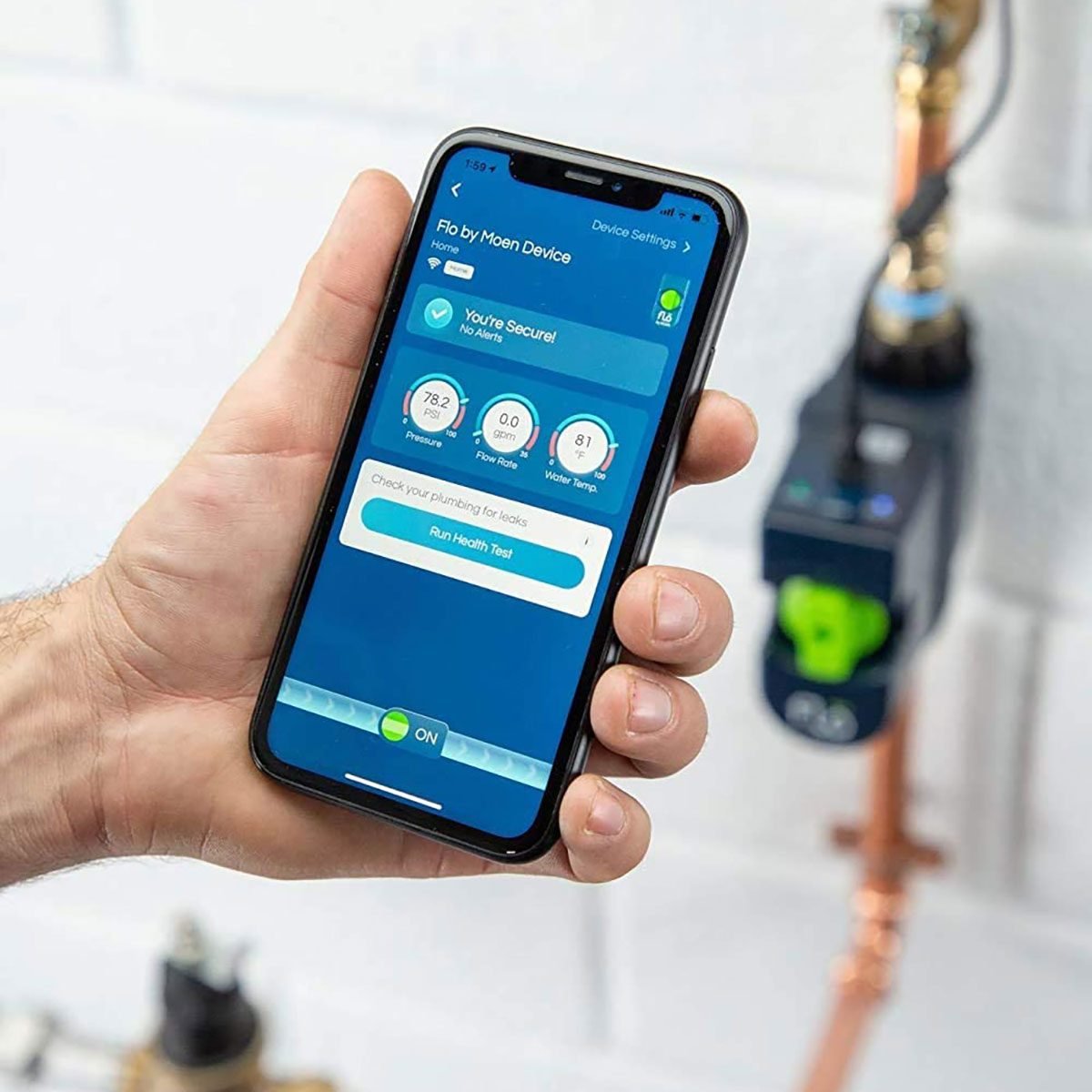A water alarm alerts you to leaks in vulnerable places in your home, and can help avert serious — and costly — water damage.

Should You Have a Water Alarm In Your Home?

According to industry experts Water Damage Defense, minor and catastrophic water leaks cost homeowners and home insurance companies billions of dollars a year. At least 14,000 water leaks, residential and commercial, are reported in the U.S. every day!
Luckily, homeowners can avoid costly repairs and a lot of headaches by installing one or more water alarms in their homes. You won’t save a bundle on homeowner’s insurance — discounts average just a few dollars — but you might save an insurance deductible by avoiding damage before it happens. And the peace of mind is priceless!
Let’s take a look at water alarms, how they work and how to best put them to use in your home.
On This Page
What Is a Water Alarm?
At its simplest, a water alarm, also called a water leak sensor, is a small device about the size of a garage door opener placed on the floor near any place a leak might occur. They’re usually connected to a control panel, remotely or with a wire. The alarm has a sensor that detects water and triggers the control panel to sound an alarm, loudly in the home or via a phone alert.
Because most water alarms are inexpensive, they’re a low-risk investment for any homeowner worried about leaks. They’re also a great idea for cabins and vacation homes — more on that later.
How Does a Water Alarm Work?
Water alarms are usually placed near washing machines or dishwasher water lines, under sinks, and near water heaters or water pipes in basements. When water comes in contact with the alarm, it goes off.
Some water alarms work like smoke detectors by emitting a loud signal. Others operate via WiFi to send an alert to the homeowner’s phone. In all cases, they’re intended to let the homeowner stop a leak before it causes extensive water damage.
Types of Water Alarms
There are two basic types of water alarms: passive and active.
Passive alarms are like conventional smoke detectors — they sound an alarm when the sensor gets wet. They can be simple units with a single sensor, or wireless systems with several sensors that can be placed all over the house. When one of these gets wet, it sends a signal to the control panel, which emits the alarm.
This type of alarm only works if the homeowner is at home to find the leak. But newer smart water alarms send a signal to the owner’s smartphone, so that someone can get to the house and investigate the leak.
As their name suggests, active alarms can actually arrest a leak. These alarm systems are linked to the home’s main water shut-off valve. When activated by a leak, it turns off the home’s water flow.
Active water alarms are ideal for vacation homes or other spaces that are vacant for long periods of time. Simpler versions, like those intended for a water heater, can be installed by the homeowner, but whole-house systems require professional installation.
How To Choose a Water Alarm for Your Home
If you just have a couple of areas you’re worried about, such as near a water heater you’re not ready to replace, then you can buy a simple single-sensor alarm. If you want sensors for several areas of the house and prefer to be alerted to leaks when you’re not at home, this multi-pack of water alarms with WiFi is a good option.
For a water alarm system that detects leaks and shuts off the water from the main line, try this smart system from Moen (professional installation is recommended).
Safety Considerations
Like smoke detectors, many models of water alarms are battery-operated. These feature low battery detectors that flash or beep, but you might not notice them if they’re hidden behind the water heater in the basement. So make sure that checking the alarms is a regular part of your home maintenance routine. Because the electrical current running through them is mild, there’s no risk of electric shock if you touch or move one while it’s wet.
One or more water alarms in your home can alert you to take action as soon as a leak starts. They can help you avert long-term damage, including mold build-up, caused by leaks. But they’re not a substitute for the routine preventative maintenance your home needs. Whether for your water heater, dishwasher, washing machine or HVAC system, a little DIY maintenance can go a long way, and help ensure that those water alarms never go beep in the night!




















